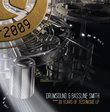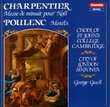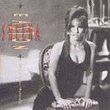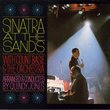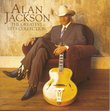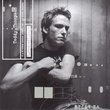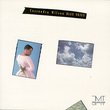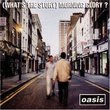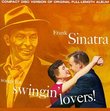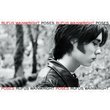| All Artists: Ahmad Jamal Title: At the Pershing: But Not for Me Members Wishing: 4 Total Copies: 0 Label: Mca Release Date: 10/17/1990 Album Type: Import Genres: Jazz, Pop Styles: Cool Jazz, Modern Postbebop, Bebop Number of Discs: 1 SwapaCD Credits: 1 UPCs: 076732910825, 0076732910825, 076732910849, 050457917388 |
Search - Ahmad Jamal :: At the Pershing: But Not for Me
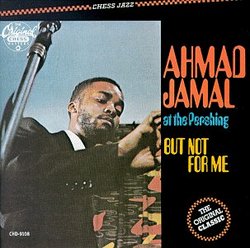 | Ahmad Jamal At the Pershing: But Not for Me Genres: Jazz, Pop
|
Larger Image |
CD DetailsSimilar CDsSimilarly Requested CDs
|
CD ReviewsF. Scott Fitzgerald was born too soon. Paul Dana | San Francisco, CA USA | 12/13/2001 (5 out of 5 stars) "Fitzgerald once wrote that "in the dark night of the soul, it is always three o'clock in the morning." Sadly, he never got to experience the rapture I felt as a 22-year old (back in the days when turntables were still powered by dinosaurs, Virginia) listening while, night after night beyond counting, the all-night DJ invariably slipped on Jamal's "Poinciana" as recorded live at Chicago's Pershing at precisely three o'clock.Hypnotic, seductive, strangely enervating in the way Jamal bounced off of Fournier's tom-toms (which were especially tuned to this song), wound his riffs around Crosby's bassline and punched his way off the counterpoint of the live audience's response, "Poinciana" served, for me, as a wake-up call, a siren song, and, most importantly, as an introduction to an individual who is today one of the late 20th century's most undervalued jazz influences.Modern critics tend to dismiss Ahmad Jamal's work as "cocktail music" (whatever that term truly means). Miles Davis, on the other hand (and not a man given to tossing off superlatives lightly), termed Jamal one of his "major influences" (to such an extent that he reportedly tried to persuade his then-pianist, Red Garland, to "play like this cat"). So . . . who you gonna believe?Believe your own ears. You can't go wrong. Even if you never get beyond the mesmerizing voyage of "Poinciana" (a tune which Jamal had previously recorded and would re-record several more times, though never to such effect as here), you're ahead of the game; BUT, take my word for it, you'll be missing a whole world of wonder if you dismiss the rest of this album. With "But Not For Me," for example, Jamal creates voicings which Gershwin never dreamed possible (but which, I suspect, would have thrilled him). This is a situation which happens time after time, with each song on this outing. Even "What's New" (a staple of every jazz pianist's standard repertoire, mine included) turns out to have a whole lot new about it as Jamal makes the song indelibly his own. (I listen to some of his progressions on this number and bang my head against the wall, wondering "How'd he do THAT?")There's a bit of a warning here: If you've not previously been exposed to Ahmad Jamal, this album may prove addictive. Ultimately, you may well find yourself out and about, haunting music stores as you search out that particularly elusive CD that he recorded way back when, working without drums, just a guitarist and . . .But then, there are worse addictions, aren't there?" One of my favorite albums Robert Richmond | San Antonio, Texas USA | 01/30/2001 (5 out of 5 stars) "I first bought the vinyl in the early 60's and still have it but it is awfully worn. Bought the CD recently. I never tire of listening to Jamal. He came to San Antonio twice in recent years and on both occasions he played "Poinciana" and "But Nor For Me." Incidentally, according to Jamal, "But Not For Me" is his most requested tune. I can't imagine anyone listening to this mellow sound and not instantly liking it. I've liked it for 42 years." Perhaps the best album by this undervalued performer... William E. Adams | Midland, Texas USA | 07/19/2002 (4 out of 5 stars) "If you have a collection of jazz from the '50's and 60's, and in the piano category you already have Monk, Brubeck, Shearing, Peterson, Evans and maybe Horace Silver, then you are ready for Jamal. If he rates in the top ten of that era on his instrument, he is right behind the guys I mentioned and maybe one or two I failed to rank. I owned this on vinyl when I was in high school, and it pleased me then, and pleases me now. Along with Errol Garner's "Concert by the Sea" released around the same time, this album made me like piano jazz and be willing to explore the efforts of other jazz greats. Jamal's style and touch is unique, and he won't please all listeners equally. Listen to the samples offered here before you buy this one, but keep in mind the best number on the disc is not available to be sampled...the huge hit (by jazz standards of the day) "Poinciana." If you like the samples you CAN hear, you'll enjoy the whole offering for sure. If you like piano jazz and you have items by those who are more well-known than Ahmad, give him a chance, too. This one is nice to have in the background when you are sitting at a computer or doing the bills."
|

 Track Listings (8) - Disc #1
Track Listings (8) - Disc #1